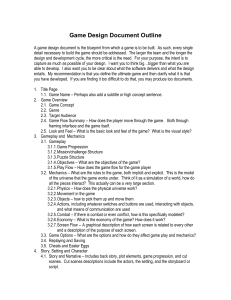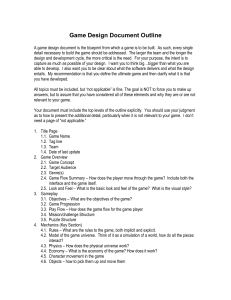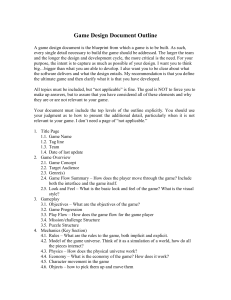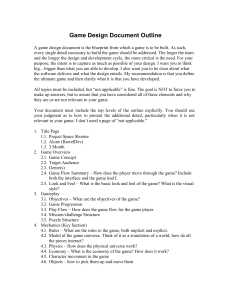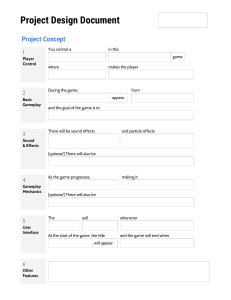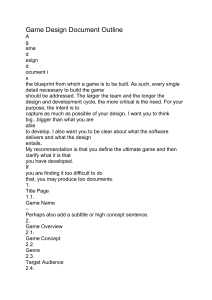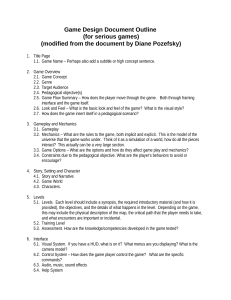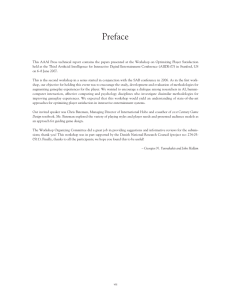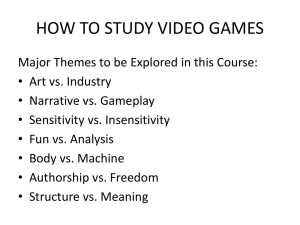Game Design Document Template
advertisement
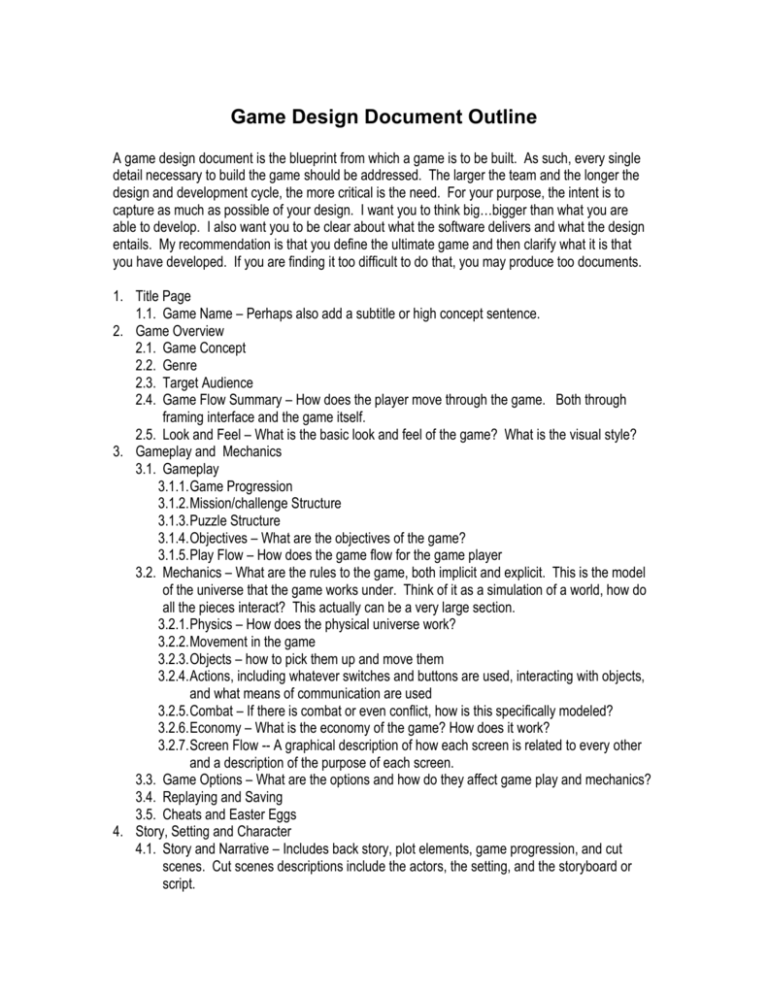
Game Design Document Outline A game design document is the blueprint from which a game is to be built. As such, every single detail necessary to build the game should be addressed. The larger the team and the longer the design and development cycle, the more critical is the need. For your purpose, the intent is to capture as much as possible of your design. I want you to think big…bigger than what you are able to develop. I also want you to be clear about what the software delivers and what the design entails. My recommendation is that you define the ultimate game and then clarify what it is that you have developed. If you are finding it too difficult to do that, you may produce too documents. 1. Title Page 1.1. Game Name – Perhaps also add a subtitle or high concept sentence. 2. Game Overview 2.1. Game Concept 2.2. Genre 2.3. Target Audience 2.4. Game Flow Summary – How does the player move through the game. Both through framing interface and the game itself. 2.5. Look and Feel – What is the basic look and feel of the game? What is the visual style? 3. Gameplay and Mechanics 3.1. Gameplay 3.1.1. Game Progression 3.1.2. Mission/challenge Structure 3.1.3. Puzzle Structure 3.1.4. Objectives – What are the objectives of the game? 3.1.5. Play Flow – How does the game flow for the game player 3.2. Mechanics – What are the rules to the game, both implicit and explicit. This is the model of the universe that the game works under. Think of it as a simulation of a world, how do all the pieces interact? This actually can be a very large section. 3.2.1. Physics – How does the physical universe work? 3.2.2. Movement in the game 3.2.3. Objects – how to pick them up and move them 3.2.4. Actions, including whatever switches and buttons are used, interacting with objects, and what means of communication are used 3.2.5. Combat – If there is combat or even conflict, how is this specifically modeled? 3.2.6. Economy – What is the economy of the game? How does it work? 3.2.7. Screen Flow -- A graphical description of how each screen is related to every other and a description of the purpose of each screen. 3.3. Game Options – What are the options and how do they affect game play and mechanics? 3.4. Replaying and Saving 3.5. Cheats and Easter Eggs 4. Story, Setting and Character 4.1. Story and Narrative – Includes back story, plot elements, game progression, and cut scenes. Cut scenes descriptions include the actors, the setting, and the storyboard or script. 5. 6. 7. 8. 9. 4.2. Game World 4.2.1. General look and feel of world 4.2.2. Areas, including the general description and physical characteristics as well as how it relates to the rest of the world (what levels use it, how it connects to other areas) 4.3. Characters. Each character should include the back story, personality, appearance, animations, abilities, relevance to the story and relationship to other characters Levels 5.1. Levels. Each level should include a synopsis, the required introductory material (and how it is provided), the objectives, and the details of what happens in the level. Depending on the game, this may include the physical description of the map, the critical path that the player needs to take, and what encounters are important or incidental. 5.2. Training Level Interface 6.1. Visual System. If you have a HUD, what is on it? What menus are you displaying? What is the camera model? 6.2. Control System – How does the game player control the game? What are the specific commands? 6.3. Audio, music, sound effects 6.4. Help System Artificial Intelligence 7.1. Opponent and Enemy AI – The active opponent that plays against the game player and therefore requires strategic decision making 7.2. Non-combat and Friendly Characters 7.3. Support AI -- Player and Collision Detection, Pathfinding Technical 8.1. Target Hardware 8.2. Development hardware and software, including Game Engine 8.3. Network requirements Game Art – Key assets, how they are being developed. Intended style.
